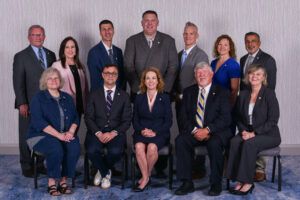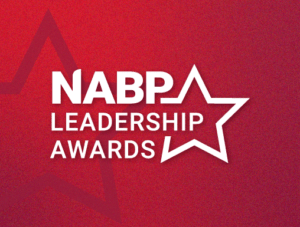Delegates from the member boards of pharmacy adopted eight resolutions during the National Association of Boards of Pharmacy® (NABP®) 109th Annual Meeting, held May 18-21, 2013, in St Louis, MO. The resolutions addressed the following:
- Boards of pharmacy will be encouraged to reference United States Pharmacopeial Convention sterile compounding standards in their regulations. In addition, boards will be urged to conduct inspections or surveys of pharmacies engaged in sterile compounding or accept sterile compounding inspections or surveys conducted by a nationally recognized body. Finally, amendments will be proposed to the Model State Pharmacy Act and Model Rules of the National Association of Boards of Pharmacy (Model Act) to address appropriate regulation and require inspection of pharmacies engaged in sterile compounding.
- Boards of pharmacy will be urged to revise their “five percent” prescription drug transfer rules to:
- allow the transfer, distribution, or sale of prescription drugs between pharmacies, or from pharmacies to practitioners, only for the purpose of dispensing or administration but not for resale, and
- prohibit the transfer, distribution, or sale of prescription drugs from pharmacies to wholesalers for resale. As returns are not a component of five percent rules, this suggested revision will not affect them.
- These revisions would not affect the ability of pharmacies to transfer medications for emergency medical reasons, including public health emergency declarations, and individual patient needs.
- NABP will convene a task force to review the status of pharmacy benefit manager (PBM) regulations in the states, determine the level of collaboration among the states in regard to regulating PBMs, and review and propose amendments to the Model Act pertaining to PBMs.
- NABP will engage in discussions with Food and Drug Administration (FDA) and member boards of pharmacy regarding the feasibility of allowing patients to choose to access mandatory patient medication information through electronic means.
- NABP and the state boards of pharmacy will work with FDA and other stakeholders to establish mutually agreeable definitions for “pharmacy compounding” and “pharmaceutical manufacturing,” and NABP will revise the Model Act to reflect the new definitions.
- NABP will collaborate with the Federation of State Medical Boards and the National Council of State Boards of Nursing to assess the impact on patient safety of the compounding and reconstitution of sterile products for infusion in establishments other than pharmacies and without pharmacists’ oversight.
- NABP will assist its member boards of pharmacy to regulate, restrict, or prohibit the use in pharmacies of performance metrics or quotas that are proven to cause distractions and unsafe pharmacy environments. In addition, NABP will propose amendments to the Model Act to address the regulation, restriction, or prohibition of the use of such performance metrics or quotas.
Additionally, a recognition resolution honoring members of the Association who have passed away was approved.
The complete text of the resolutions will be available in the Reports section of the NABP website.
NABP is the independent, international, and impartial Association that assists its state member boards and jurisdictions in developing, implementing, and enforcing uniform standards for the purpose of protecting the public health.


